|
Zhengran Ji I am currently a first-year PhD student in Computer Sceince at Duke University in Durham NC, United States. My advisor is Prof. Boyuan Chen. I recived my BS in Mathematics and Computer Science from University of California, Irvine (UCI), my advisor was Prof. Huolin Xin. I am currently working on Human-guided Reinforcement Learning, Multi-Agent Reinforcemnet Learning, and RLHF. |

|
ResearchI am generally interested in reinforcement learning, multi-agent/robot systems, human-in-the-loop learninng, and RLHF. |
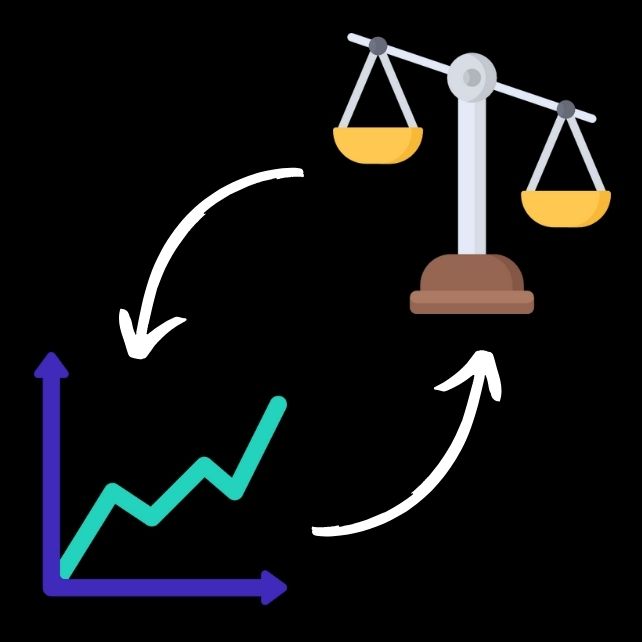
|
Pref-GUIDE: Continual Policy Learning from Real-Time Human Feedback via Preference-Based Learning
Zhengran Ji, Boyuan Chen Transactions on Machine Learning Research (TMLR 2025) paper / video / code / website We introduce Pref-GUIDE, a novel method that convert real-time human feedback into preference dataset for continual training after human left the loop. Pref-GUIDE further leverages the population power by aggregating feedback from multiple evaluators through voting to generate soft-label preference dataset to train more robust reward models. |
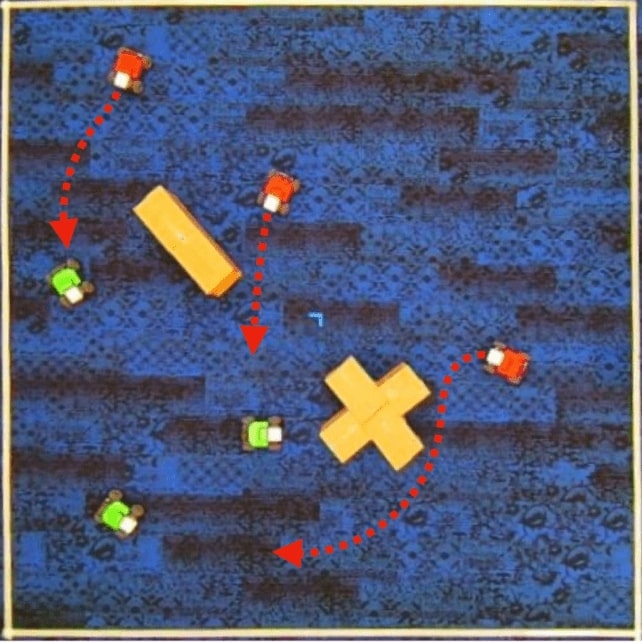
|
HUMAC: Enabling Multi-Robot Collaboration from Single-Human Guidance
Zhengran Ji, Lingyu Zhang, Paul Sajda, Boyuan Chen Ineternational Conference on Robotics and Automation (ICRA 2025) paper / video / code / website We introduce HUMAC, a novel framework that enables multi-robot collaboration from single-human guidance. HUMAC leverages a novel human-robot interface that allows a single human to guide multiple robots simultaneously. We demonstrate the effectiveness of HUMAC in a challenging Multi-agent Hide and Seek game both in simulation and real-world setting. |
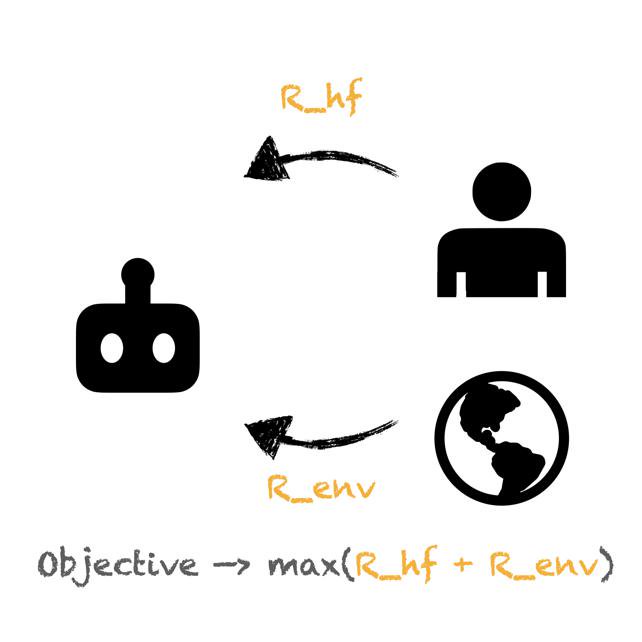
|
GUIDE: Real-Time Human-Shaped Agents
Lingyu Zhang, Zhengran Ji, Nicholas R Waytowich, Boyuan Chen Neural Information Processing Systems (NeurIPS 2024) paper / video / code / website We introduce GUIDE, a framework for real-time human-guided reinforcement learning that accelerates policy learning by integrating continuous human feedback into dense rewards. GUIDE also features a simulated feedback module that learns human feedback patterns, reducing the need for human input while enabling ongoing training. Tested on tasks with sparse rewards and visual observations, GUIDE achieves a 30% higher success rate with just 10 minutes of human feedback compared to standard RL methods. Our human study with 50 participants highlights the effectiveness of our approach. |
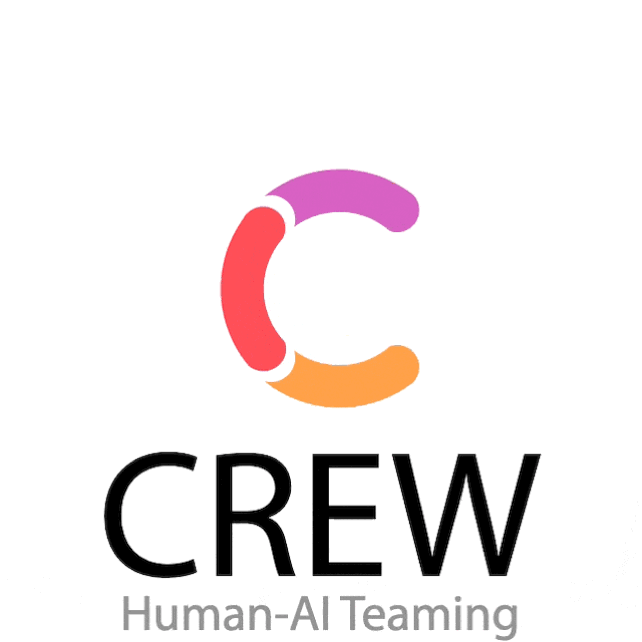
|
CREW: Facilitating Human-AI Teaming Research
Lingyu Zhang, Zhengran Ji, Boyuan Chen Transactions on Machine Learning Research (TMLR 2024) paper / video / code / documentation / website We introduce a platform for Human-AI teaming research. CREW offers extensible environment design, enables real-time human-AI communication, supports hybrid Human-AI teaming, parallel sessions, multimodal feedback, and physiological data collection, and features ML community-friendly algorithm design. |
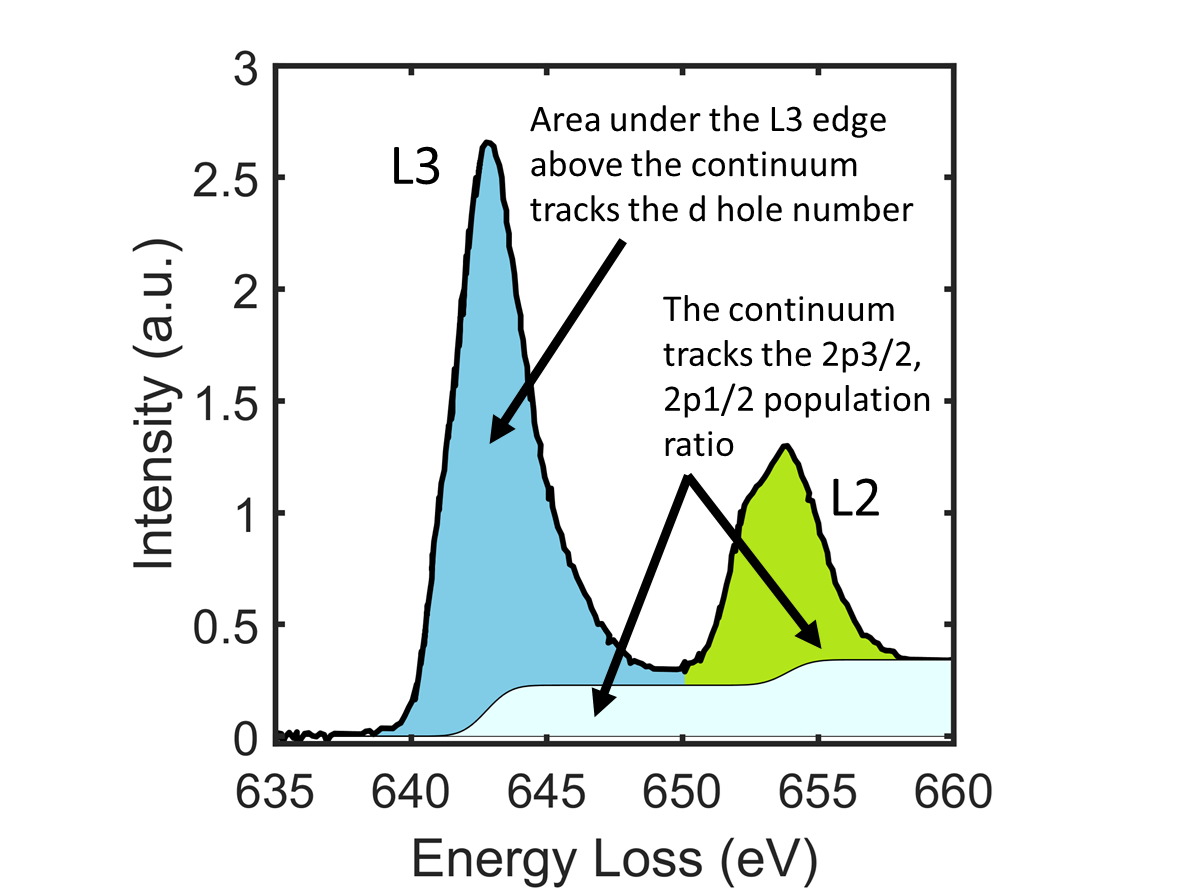
|
MnEdgeNet -- A regression deep learning network for
decomposing Mn valence states from EELS and XAS L2,3 edges
Zhengran Ji, Mike Hu, Huolin Xin, Scientific Report, 2023 paper / code We developed a deep learning model to decompose mixed Mn oxidation states from Mn L2,3 edges in EELS and XAS, without the need for reference spectra or calibration. Trained on a large synthetic dataset, the model achieves high accuracy and robustness, successfully validating against experimental Mn oxide data for automated analysis. |
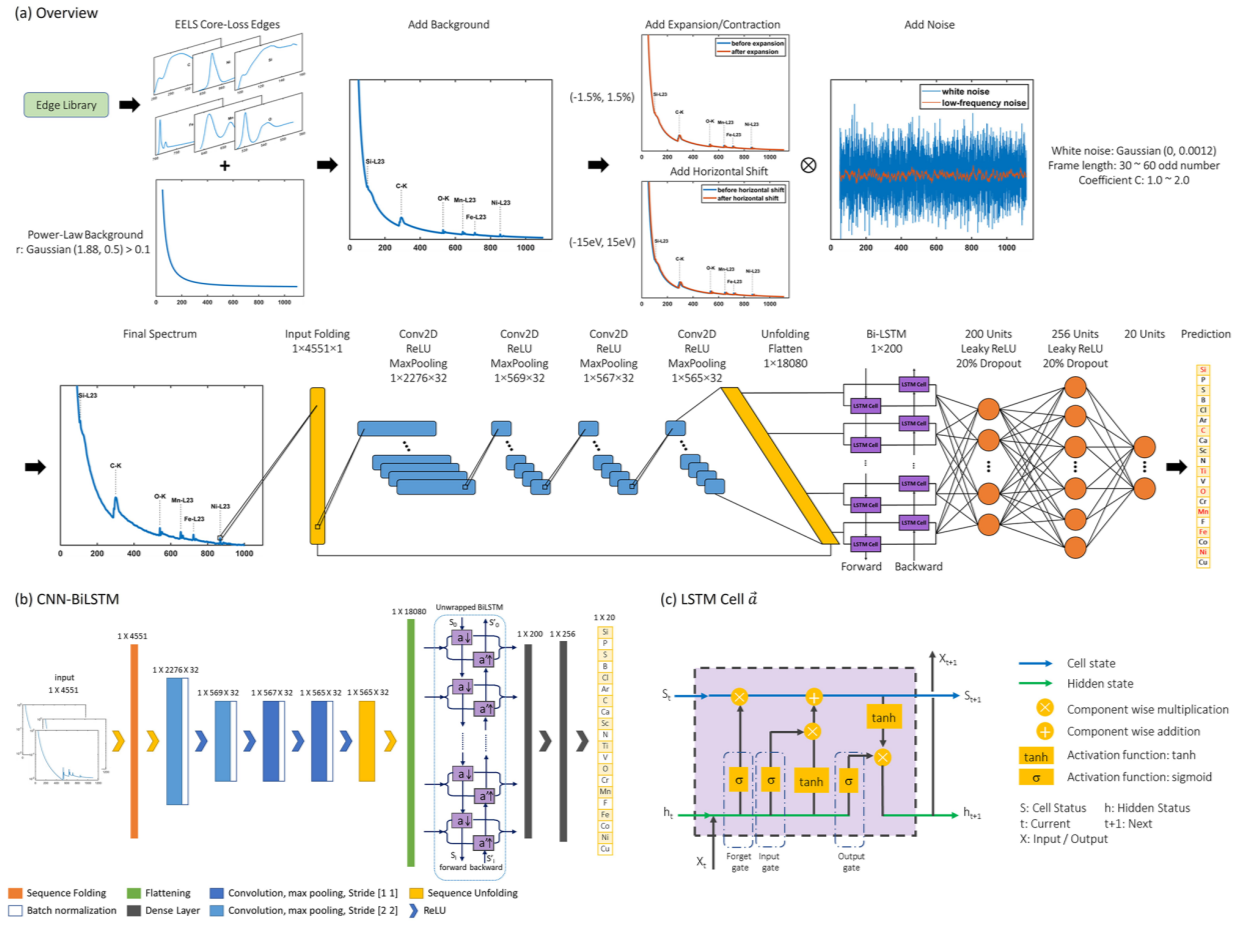
|
Electron energy loss spectroscopy database synthesis and automation of core-loss edge recognition by deep-learning neural networks
Lingli Kong, Zhengran Ji, Huolin Xin, Scientific Report, 2022 paper We propose a CNN-BiLSTM neural network to automate the detection and identification of core-loss edges in EELS spectra, overcoming challenges like low signal-to-noise ratios and weak edges in raw data. Trained on a synthesized spectral database modeled after real experimental data, the network achieves 94.9% accuracy, enabling fast, accurate core-loss edge recognition without manual preprocessing. |
|
Website template from Jon Barron. |